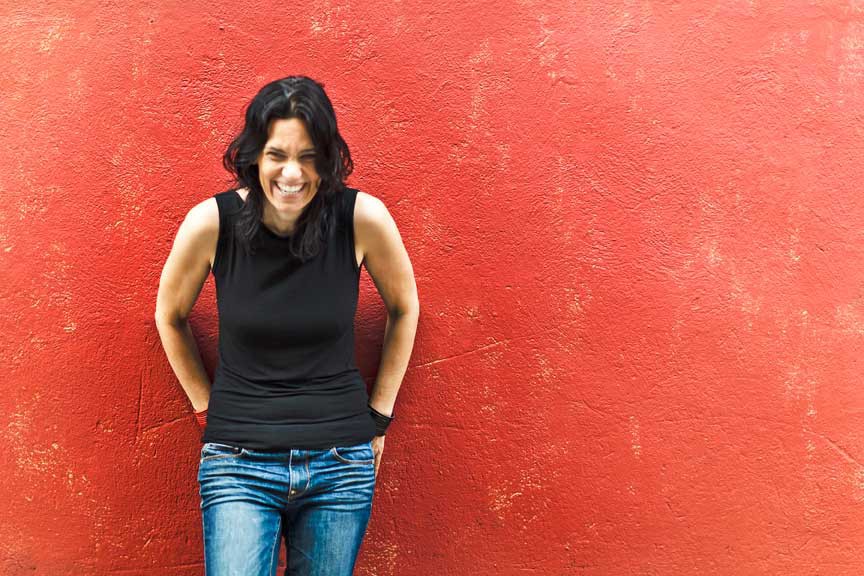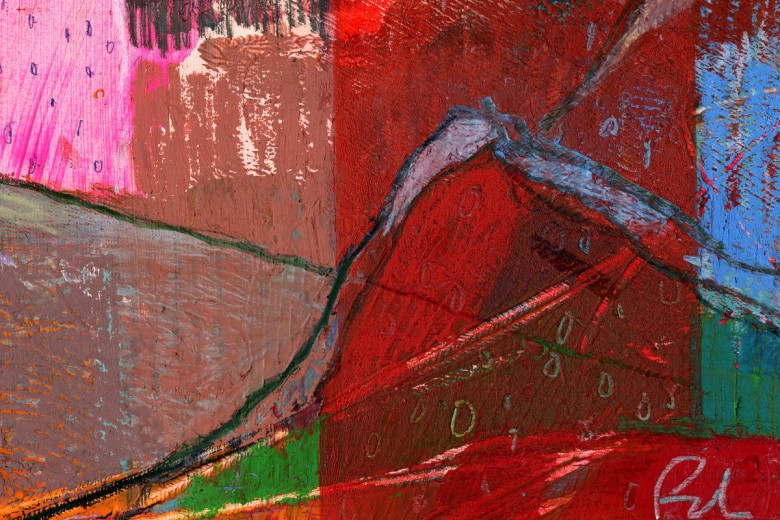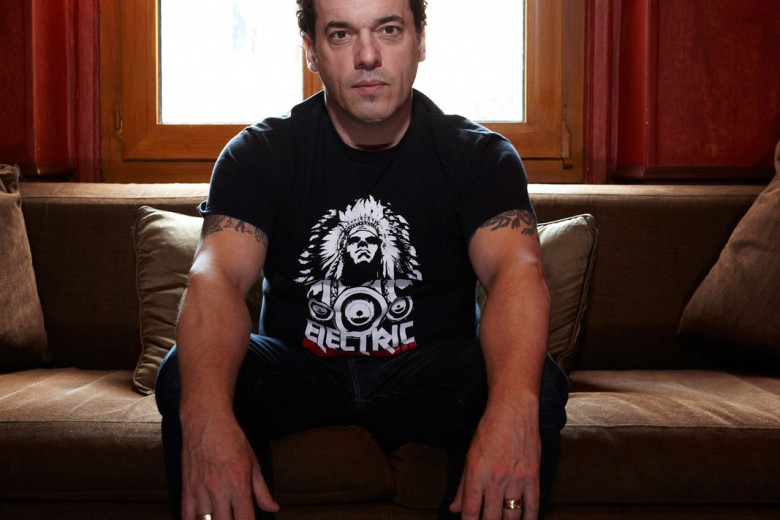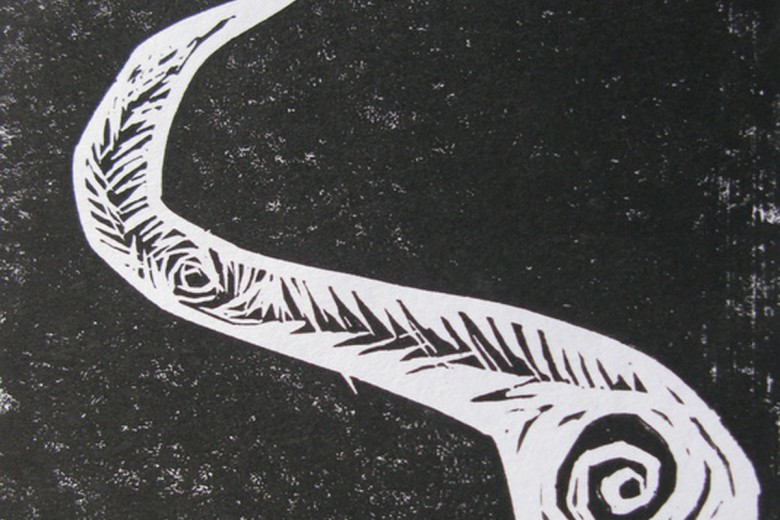
Now in its fifth year, Briarpatch’s Writing in the Margins contest continues to spotlight new writing that brings to life issues of political, social, and environmental justice.
This year, creative non-fiction entries will be judged by celebrated Michi Saagiig Nishnaabeg writer Leanne Betasamosake Simpson, who won our Writing in the Margins prize for short fiction in 2012 and was chosen by Thomas King as the inaugural RBC Charles Taylor Emerging writer in 2014. Her books include Dancing on Our Turtle’s Back, The Gift Is in the Making, and Islands of Decolonial Love. Her edited and co-edited books include Lighting the Eighth Fire, This is an Honour Song, and The Winter We Danced.
This year’s poetry entries will be judged by West Coast poet, activist, and professor Stephen Collis. His many books of poetry include The Commons, On the Material (awarded the B.C. Book Prize for poetry), and To the Barricades. Last year, Collis was named with four other activists in a $5.6 million lawsuit by the energy giant Kinder Morgan, for “opposing the Trans Mountain pipeline and terminal expansion” in Burnaby, B.C.
Outgoing editor Andrew Loewen caught up with our judges to talk about writing and politics.
How did you come to writing? When did you start to identify as a writer?
LBS: Throughout school and much of university, teachers told me I wasn’t a good writer. I don’t really ever remember anyone encouraging me or recognizing in me that writing was something I could do. It was never presented to me as an option. So although I wrote a lot throughout my life, it’s only been more recently that I’d call myself a writer. I’m a writer because I write, but I’m a lot of other things as well.
SC: I had always written and read a lot, a natural-born escapist. But, after marrying and becoming a father in my teens, and then divorcing a few years later, I began to dedicate myself, a little obsessively, to writing, and to the identity of “writer,” in my early 20s.

Stephen, you are primarily known as a poet but have also published fiction and essays, and Leanne, your writing spans many forms including short fiction, poetry, essays, and other genres. What factors shape the genre or form that you write in? How do you choose?
LBS: I get interested in an idea or a tiny story. I spend time with it until something emerges. Sometimes it’s poetry, other times it’s a short story or an essay, and sometimes it’s something more academic. It often depends upon what I want to say; poetry and short stories have much more freedom through which to speak truths than academic work. So often I don’t choose, the idea chooses.
SC: I set out, in my early 20s, to write fiction. Poetry just “happened,” and took over. It didn’t feel like a choice. Now I occasionally write fiction again, too. In a sense, the choice for me really is just about the “room” I might need to work through some ideas – that fiction allows me to be a little “wordier.” But the line between poetry and fiction also continues to blur for me, and it seems like I’m working toward some kind of hybrid form. For many writers, I think fiction means a larger potential audience, which might be true; however, I tend to write through and for communities with which I am in some way engaged (social and environmental justice communities, by and large), and so the question of access to audience is different, less about genre, more about a common cause.
You’re both educators in addition to being writers. What have you learned about writing from teaching?
LBS: I work a lot with Indigenous students often new to formal post-secondary education. They often have a lot of fear around writing – that their truths are not truths, that their stories are not important, that they are not good writers. I have felt all of that over the course of my life and so they remind me of how important it is to be brave and speak our truths and to write as if we are free. They also remind me of how important it is to develop a critical Indigenous consciousness, and to do that I think we need more Indigenous public intellectuals and writers writing for our own people on our own terms.
SC: I think I’ve learned two contradictory things: that sometimes simpler is better, and that, given the right atmosphere and encouragement, complexity is very good too. As readers, I think we like to know how tangled and interconnected things really are, but we also like to know where we can grab hold of something and give it a tug. Students taught me that.
Who do you write for? (Why?)
LBS: I write for Indigenous peoples because that is a political act. Very few people write with an Indigenous audience in mind.
SC: A friend once answered this, adapting Gertrude Stein’s answer, “friends and strangers,” which, I guess, is everyone. I began writing thinking it was a bad idea to think too much about audience, and to focus instead on “what I have to say.” It seemed out of my hands whether anyone would care or not. But as time has passed, I am more and more interested in an audience formed by community in shared struggle. I write for the common cause – these are the “friends.” But I write for “strangers” too – for anyone who might stop to listen or pick up the book and read and find their way in.
Do you have anything to share with writers who might be thinking of entering Briarpatch’s Writing in the Margins contest this year?
LBS: Just write. Art isn’t a competition. Art isn’t a prize. Don’t worry about external recognition. Write something that has deep meaning for you, that you feel proud of and that resonates with your life.
SC: As much as one might be writing, as it were, in the name of justice, for or from a community in struggle, or for a better world, one is still at the same time creating an object, whether poem or prose, that needs to be able to stand on its own and invite readers to spend a little time with it, regardless of the context. What is it that draws me in as a reader and makes me take my time with a text? That’s the question I’m always asking myself. I keep trying to write what I like to read. What do you like to read? Write that thing. That’s the writer’s utopian challenge.





